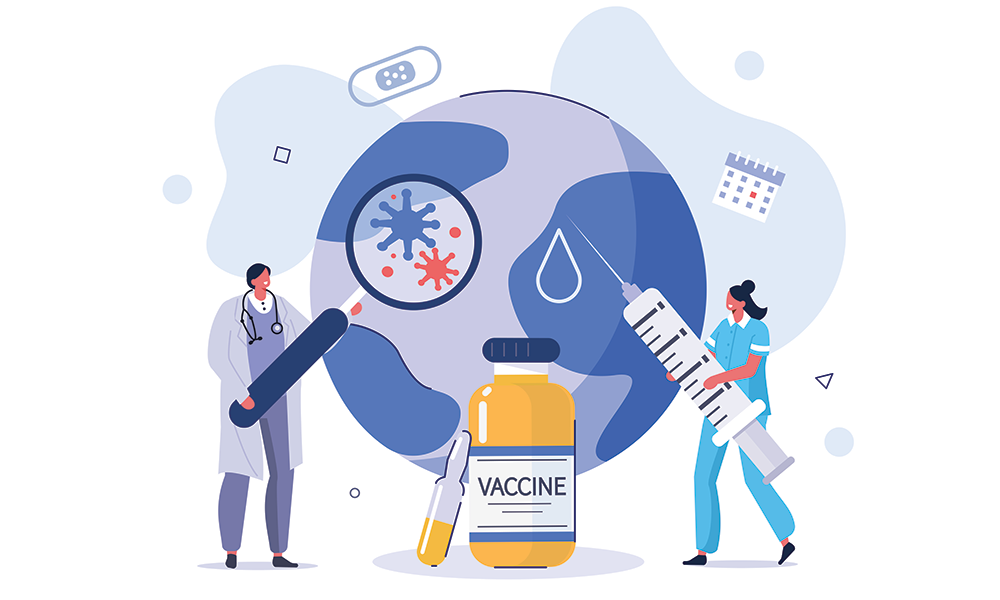The global COVID-19 vaccination campaign saved 2.4 million lives in 141 countries and could have saved about 670,000 more had the vaccines been distributed equitably, according to a working paper from the USC Schaeffer Center for Health Policy & Economics and Brown University.
The working paper, shared by the National Bureau of Economic Research this week, also valued the saved lives at $6.5 trillion, or about 9% of the combined GDP of the 141 countries.
The findings suggest that vaccines and therapeutics are much better at preventing death than other policies aimed at slowing the spread of the virus, the authors said. In a previous study, for example, the authors did not find that countries or U.S. states that implemented shelter-in-place policies earlier had lower excess deaths. (The CDC defines “excess deaths” as the difference between observed and expected deaths over a specific time period.)
“The global rollout of COVID vaccines was the largest public health campaign in human history. By saving 2.4 million lives, the vaccines were much more effective than non-pharmaceutical interventions such as lockdowns and mask mandates,” said co-author Neeraj Sood, Director of the COVID-19 Initiative and a senior fellow at the USC Schaeffer Center.
Virat Agrawal, a PhD candidate at the USC Sol Price School of Public Policy, and Christopher M. Whaley, Associate Professor in the Department of Health Services, Policy and Practice at the Brown University School of Public Health, were also co-authors of the study.
The global COVID-19 vaccination campaign fully vaccinated more than 2 billion people within the first eight months after it was launched. The study is the first to estimate the impact that the campaign had on excess deaths, using observational data. Excess deaths are a better measure than recorded COVID-19 deaths, which can be incorrectly reported, researchers said.

Measuring health and economic benefits
“Our study shows the enormous health impacts of COVID-19 vaccines, which in turn have huge economic benefits. The benefits are massive,” Whaley said. “In terms of lives saved and economic value, the COVID-19 vaccination campaign is likely the most impactful public health response in recent memory.”
While about 2.4 million deaths were averted from January to August 2021, researchers concluded roughly 670,000 more lives could have been saved if vaccines were distributed in proportion to the population of these 141 nations. The current market-based approach led to high-income countries having more immediate access than low and middle-income countries, authors said.
Had the vaccine been distributed equitably, the campaign would have saved more than 3 million lives, but with a $1.8 trillion decrease in economic value, the study found. Researchers calculated the value of lives saved using country and region-specific estimates of the value of statistical life (VSL), a measurement used by economists and governments to measure the benefit of preventing a fatality. (VSL is defined by the U.S. Department of Transportation as the additional cost that individuals would be willing to bear for improvements in safety to reduce fatalities). Since rich countries have higher earnings, they have higher VSLs.
“Establishing a global vaccine distribution policy will be crucial in preparing for future pandemics,” Agrawal said.
Research funding
The study was funded by grants from the National Institute on Aging and the Peter G. Peterson Foundation Pandemic Response Policy Research Fund.
Sign up for Schaeffer Center news

You must be logged in to post a comment.